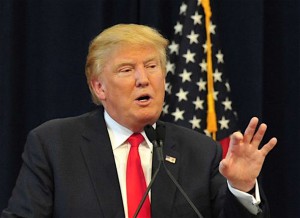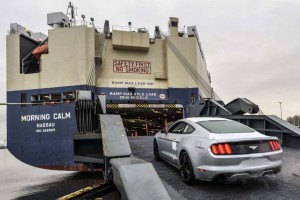The ripples from the last week’s Presidential election continue to rock the nation’s trade policies.
The Trans-Pacific Partnership, favored by President Barack Obama and Congressional Republicans, has now been declared a dead letter in the wake of Donald Trump’s victory at the polls.
A Trans-Atlantic Trade and Investment agreement favored by automakers in both North America and Europe is very likely to die as well under the weight of Trump’s skepticism of multilateral trade agreements. The Trans-Atlantic Partnership would have opened the door to commonizing safety regulations on both sides of the Atlantic and was favored by car makers.
The discussions “are dead, and I think everybody knows it,” Matthias Fekl, the French secretary of state for trade, told The New York Times Friday as trade ministers met in Brussels. “Globalization has created lots of losers, lots of difficulties.”
(UAW ready to talk trade with Trump. Click Here for details.)
The incoming administration of President-elect Trump has vowed to reduce regulations but with the number of traffic deaths, climbing a brisk clip, the safety regulations are probably not a major target.
Trump has said he favors trade pacts negotiated one country at a time but that doesn’t do much for a global industry that operates in dozens of different markets around the world.
Congressional leaders confirmed that TPP, which encompassed 11 other Pacific Rim nations that President Obama hoped to sign, is dead.
(Auto industry issues will be high on the next president’s agenda. For more, Click Here.)
In addition, there is little expectation that Trump will push an updated version of TPP agreement, given his hostility to trade pacts generally as well as the complexity of re-ordering a Pacific pact, even if means handing more influence to China, particularly in South America and Southeast Asia. The other parties to the agreement are Brunei, Malaysia, Mexico, New Zealand, Peru, Singapore and Vietnam.
However, for many voters TPP became shorthand for their broader discontent with stagnant wages and job losses blamed on globalization and past trade agreements. Trump also has said he plans to withdraw the U.S. from the Global Climate Accord.
Meanwhile, Trump has promised to re-negotiate the pivotal North American Free Trade Agreement and the pressure is building. During the weekend, articles appeared calling out Trump to make good on his promise to stop Carrier from moving jobs to Mexico from a plant in Indiana.
(To see more about the UAW’s anti-TPP stance, Click Here.)
In addition, a newspaper in Warren, Ohio, The Warren Tribune, asked editorially why GM was eliminating the third shift at the Lordstown assembly plant while it was continuing to produce the Chevy Cruze in Mexico and suggested President-elect Trump should intervene.



We’re going to wind up having to buy Japanese and Korean brands made start-to-finish in the US because of tariffs on US brands made in Mexico and Canada. Gonna be a bit strange.